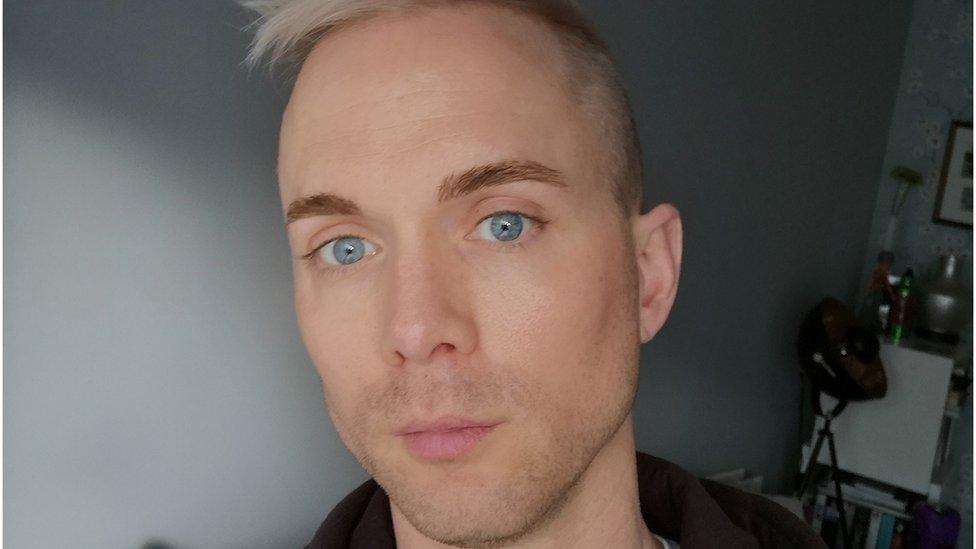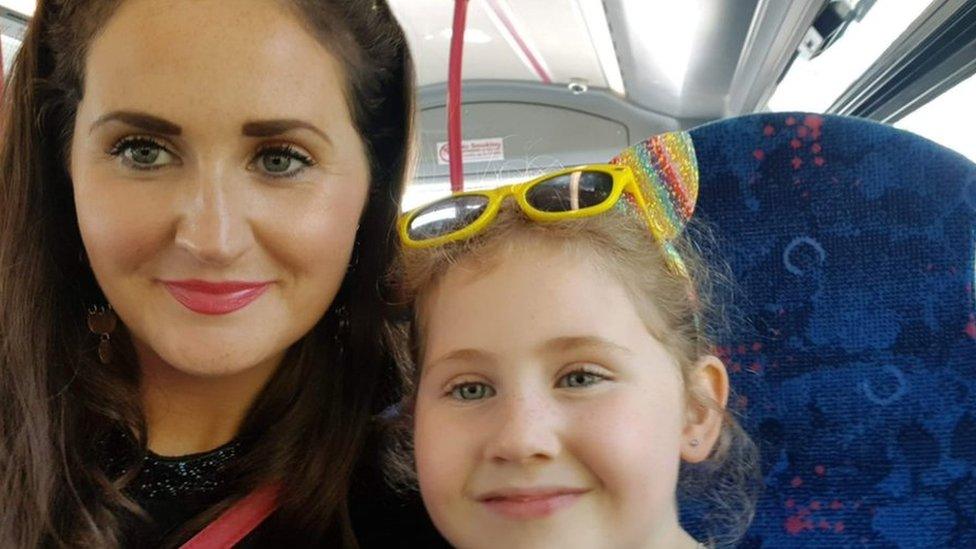Covid-19: The similarities between 'long Covid' and ME
- Published

Gary Campion was diagnosed with ME six years ago
Gary Campion has been living with Myalgic Encephalomyelitis (ME) for the past six years.
The 38-year-old, from south Belfast, used to run 5km every day before work and visit the gym six times a week.
But his life changed forever when he contracted the chronic neurological condition after a horse riding accident. He felt constantly fatigued, in pain and suffered muscle spasms.
Some of the common symptoms associated with ME, such as fatigue, confusion and memory loss, have been reported by people who've not fully recovered from coronavirus.
Charities that support people with ME have told BBC News NI that they are getting queries from those with "long Covid" - a term used to describe a range of symptoms identified in some people months after they have had the virus.
Mr Campion said the similarities between his symptoms and those experienced by many post-Covid patients are striking.
"It's like looking in a mirror for us," he told BBC News NI.

There have been calls for a dedicated centre to help those suffering from "long Covid" in Northern Ireland
Joan McParland runs the Hope for ME and Fibro group from her home in Bessbrook, County Armagh.
She said she has been contacted by post-Covid patients who have researched their symptoms online.
"Their stories are identical to my own - a viral onset and exhaustion, post-exertion malaise, nausea, pain, dizziness and non-recovery, and getting worse as they fight their way through these symptoms," she said.
"These are mildly affected patients we're dealing with and six months later they can't get out of bed, and some of them are health professionals."
Dr Charles Shepherd is the ME Association's medical adviser and was asked to brief UK Health Secretary Matt Hancock's office after developing a guide to post-Covid syndromes.
'Similarities' with ME
He said demand for support from the charity has steadily increased since April.
"We know from a previous outbreak of a similar type of infection, called SARS, back in 2002, that around 10% of people following that were developing long-lasting symptoms and about 10% of these people were developing an ME/chronic fatigue-like illness," said Dr Shepherd.
Occupational therapist Lorraine Henry runs an ME/Chronic Fatigue Syndrome (CFS) programme for the Northern Health and Social Care Trust.
She said she is now getting queries about people with long Covid and believes research in this area will benefit other post-viral conditions.
"In my work, I do see some similarities between ME/CFS, both in terms of management but also symptoms," she said.
"The question seems to be: 'Why do some people recover well from Covid while others' symptoms persist?'
"That's a question that's quite similar to the question that's asked in ME/CFS."
New guidance
The body that advises GPs on how to treat medical conditions, the National Institute for Health and Care Excellence (NICE), defines post-Covid syndrome as symptoms that continue more than 12 weeks after a coronavirus infection, which are not explained by another condition.
It published specific guidance on how to help patients last month.
In July, it issued a statement advising GPs not to treat post-Covid patients by following its guidance for treating ME.
It had recommended using cognitive behavioural therapy and graded exercise therapy (GET) to help ME patients but many people say this can make their condition worse.
NICE is now consulting on new guidance which says GET should no longer be used as a standard treatment for ME.
The Scottish government has already revised its advice for GPs on the treatment of ME and CFS and campaigners are calling for the same to happen in Northern Ireland.
The Department of Health said work on a regional review of neurology services was paused due to the pandemic but will be resumed at the earliest opportunity.
It also said the virus was the reason for a suspension of recent efforts to recruit a medical ME lead for Northern Ireland.
A previous recruitment campaign in 2018 also failed to recruit a specialist but the department said it hopes this will happen this year.
Related topics
- Published7 August 2020

- Published6 October 2020
